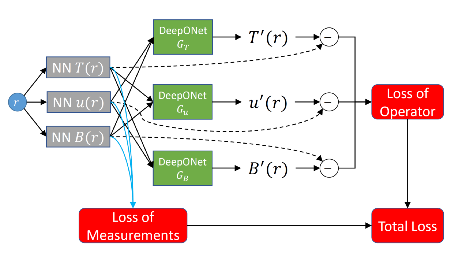
Brains, Minds + Machines Seminar Series: DeepOnet: Learning nonlinear operators based on the universal approximation theorem of operators
Description
Abstract: It is widely known that neural networks (NNs) are universal approximators of continuous functions, however, a less known but powerful result is that a NN with a single hidden layer can approximate accurately any nonlinear continuous operator. This universal approximation theorem of operators is suggestive of the potential of NNs in learning from scattered data any continuous operator or complex system. To realize this theorem, we design a new NN with small generalization error, the deep operator network (DeepONet), consisting of a NN for encoding the discrete input function space (branch net) and another NN for encoding the domain of the output functions (trunk net). We demonstrate that DeepONet can learn various explicit operators, e.g., integrals and fractional Laplacians, as well as implicit operators that represent deterministic and stochastic differential equations. We study, in particular, different formulations of the input function space and its effect on the generalization error.
This seminar talk will be hosted remotely via Zoom.
Zoom Webinar link:https://mit.zoom.us/j/95815924103?pwd=Y0Zrd3hiQWdGN3k3SlVORFJFZkRwUT09
passcode 829729

